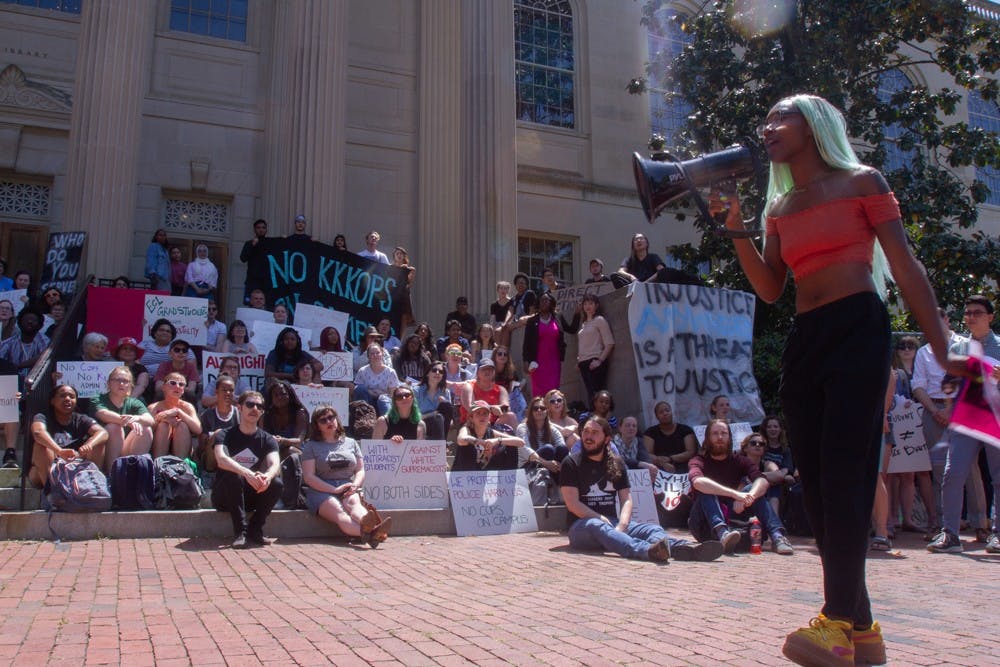A sea of demonstrators on the stairs of Wilson Library, chanting and sporting signs expressing their dissatisfaction with UNC Police is the sight that met students who walked through Polk Place Wednesday afternoon.
Demonstrators gathered on the steps of Wilson at 1:30 p.m. for a demonstration against police brutality. Lindsay Ayling, a graduate student in the Department of History and an organizer of the event, explained why the protest was necessary.
“Pretty much the entire year, police have been brutal to anti-racists while protecting white supremacists,” Ayling said.
Those who gathered began chanting, echoing shouts including, “Who do you serve? Who do you protect,” “Ain’t no power like the power of the people ‘cause the power of the people don’t stop” and “Cops and Klan go hand-in-hand.”
Following a performance by the Raging Grannies, who sang an original song to express their support for UNC students’ safety, several speakers came to the front to address the crowd. Speakers included a student from the Lumbee tribe who came to give a land acknowledgment, students who expressed dissatisfaction with the way they were personally treated after reporting police violence and students from various campus organizations.
Cortland Gilliam, a doctoral student in the School of Education, began his speech by thanking those who had gathered for their decision to act and show solidarity.
Gilliam said he had been offered a position on the Campus Safety Commission and declined the offer twice, citing quotes from the invitation that seemed untrue to him. He expressed doubt that a top priority of the University is to ensure the safety of the campus, unlike the invitation had stated.
“This rhetoric of safety implies that there is something here to be protected,” Gilliam said. “But I ask, if not students and staff and faculty, who have sacrificed blood, sweat, tears, time and energy on countless occasions in attempt to make this place more bearable for folks of color and other marginalized and maligned groups, who or what is this institution protecting? The answer is as apparent now as it has always been: whiteness and white supremacy.”
Gilliam continued by calling into question what is deemed as safe by the police.



